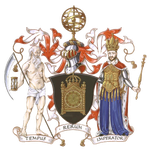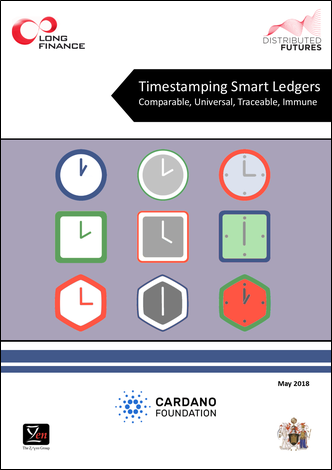Authors
Sam Carter
Sponsored by
- Cardano Foundation
Published by
Long Finance (June 2018), 55 pages.
Share on social media:



Timestamping Smart Ledgers: Comparable, Universal, Traceable, Immune
Long Finance's Distributed Futures research programme is pleased to announce the publication of the report “Timestamping Smart Ledgers: Comparable, Universal, Traceable, Immune”, the latest in a series of exciting projects in the programme.
The report offers insight to support senior business people and policy makers in understanding why timestamping matters. The research outlines current and historic methods for recording the time of an event, as well as the challenges that will be faced in the future as standards of accuracy, frequency, and precision continue to be raised.
The challenges vary by sector. In the world of finance, these challenges include the stringent transaction timestamping requirements laid down by MiFID II Article 25 (or "RTS 25"). In geolocation, the interaction with global positioning systems, themselves subject to relativistic and quantum effects, are equally challenging. For Smart Ledgers, recording the time of transactions is a fundamental feature, yet there are a number of definitions and options that managers choose, often unknowingly, when they instruct their teams.
The research was led by Sam Carter, Financial Sector Researcher and Quant Developer, under the direction of Professor Michael Mainelli, Executive Chairman, Z/Yen Group, and specifically incorporates:
- The use of Smart Ledgers
- A brief history of timestamping
- Timekeeping standards
- Broadcast time
- Secure timestamping
- Desirable properties of a timestamping scheme
- Smart Ledgers and timestamping
- Finance and regulation
- Conclusion
As Andrew James, Master, The Worshipful Company of Clockmakers said in his foreword to the report:
“What time is it? When did something happen? When is an event expected? How much time separates two events? Which came first? These questions arise in everyday life and in every kind of discipline. So, I welcome this research that explores accuracy AND precision in the application of time in the brave new world of Smart Ledgers and the impact they will have on all of us, over time….”
Michael Mainelli added:




